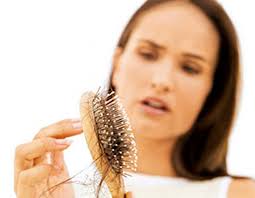The significance of chemotherapy is its ability to kill cancer cells. The downside is that it also affects other healthy cells which grow and multiply such as those found in the skin, digestive tract, bone marrow, reproductive organs, and hair. Damage to these normal cells cause side effects, which often start during the initial weeks of treatment.
While most of these side effects can be easily managed and occur temporarily and stop at the same time as the treatments, some of them impact on the patient’s appearance/self-esteem. The effects of chemotherapy on skin and hair are especially worrisome for a majority of patients. The most common side effect of chemotherapy, however, is fatigue. It is also a debilitating one.
Fatigue
 The patient feels heavy in his/her limbs and may be unable to tend to daily activities. Rest usually does not relieve fatigue, which can suddenly appear and remain for weeks or even months after one cycle of chemotherapy treatment ends. To alleviate fatigue, help your body save energy by doing less tasks and getting more rest. If you have a job, ask your boss if you could reduce work hours or work from your home while undergoing chemotherapy.
The patient feels heavy in his/her limbs and may be unable to tend to daily activities. Rest usually does not relieve fatigue, which can suddenly appear and remain for weeks or even months after one cycle of chemotherapy treatment ends. To alleviate fatigue, help your body save energy by doing less tasks and getting more rest. If you have a job, ask your boss if you could reduce work hours or work from your home while undergoing chemotherapy.
Have more vegetables and fruits in your diet. Continue you exercise regimen if you had one before chemotherapy, but don’t begin any new ones until after chemotherapy treatment is over. Yoga or meditation exercises, however, would be good while undergoing chemo. Ensure that the fatigue you feel is related to anemia, or low count of red blood cells, so it can be dealt with immediately.
Vomiting or Nausea
 A patient’s appetite is subject to changes when going through chemo. Most patients may not even like the taste of some of the foods which they used to enjoy. Chemo makes a patient vomit or nauseous frequently. Although not all patients undergoing chemo will feel sick after a treatment, some experience nausea after several hours of treatment which could last for hours and come with retching or vomiting.
A patient’s appetite is subject to changes when going through chemo. Most patients may not even like the taste of some of the foods which they used to enjoy. Chemo makes a patient vomit or nauseous frequently. Although not all patients undergoing chemo will feel sick after a treatment, some experience nausea after several hours of treatment which could last for hours and come with retching or vomiting.
Anti-vomiting/anti-nausea medication is usually prescribed to alleviate this condition and may be taken as tablets, liquids, suppositories, wafers or injections. One such medication is Zofran, which is also prescribed for pregnant women who experience vomiting/nausea, a 5-HT3 receptor antagonist that blocks the brain’s serotonin function to trigger bouts of vomiting/nausea. You can also try the following tips to alleviate nausea/vomiting:
- Have a light meal before treatment like dry biscuits or toast with soup.
- Drink as much water as you can.
- If you cannot drink that much liquid all at once, increase fluid intake by sipping small amounts of water. You can also suck on ice cubes or soft jelly.
- Remedy an upset stomach by drinking ginger ale or soda water.
- Breathe gently and deeply through the mouth if vomiting seems imminent.
- Sugarless mints can help alleviate feelings of nausea/vomiting.
Loss of Hair
 There is considerable hair loss for people undergoing chemo. Others lose all of their hair after several chemo sessions while others lose all of their hair in just one or two sessions. Still, there are others who lose only some hair, if at all. Hair loss occurs within the first two to three weeks of initial chemo session. When hair falls out, the scalp will feel tender, tingly, hot or itchy. Patients who have sensitive skin may develop pimples on their scalps after several treatments.
There is considerable hair loss for people undergoing chemo. Others lose all of their hair after several chemo sessions while others lose all of their hair in just one or two sessions. Still, there are others who lose only some hair, if at all. Hair loss occurs within the first two to three weeks of initial chemo session. When hair falls out, the scalp will feel tender, tingly, hot or itchy. Patients who have sensitive skin may develop pimples on their scalps after several treatments.
Hair grows back between four and 12 months after chemo is completed. When a patient loses his/her hair, there are feelings of unattractiveness, sadness or vulnerability, especially when the hair’s normal condition seems a long time in coming. To relieve some of these emotions, remember to:
- Keep your scalp clean all the time and use baby shampoo or other mild shampoo to wash your hair with.
- Brush/comb your hair using a hairbrush/comb with soft bristles.
- Collect hair when you go to bed by wearing a beanie or turban made of light cotton.
- Nylon irritates the scalp so use pillowcases made of polyester, satin or cotton.
- Protect your head against the cold or sunburn and wear a hat when outdoors.
- Stop using hair dyes and getting perms or waves and limit your use of rollers/hair dryers.
Share This